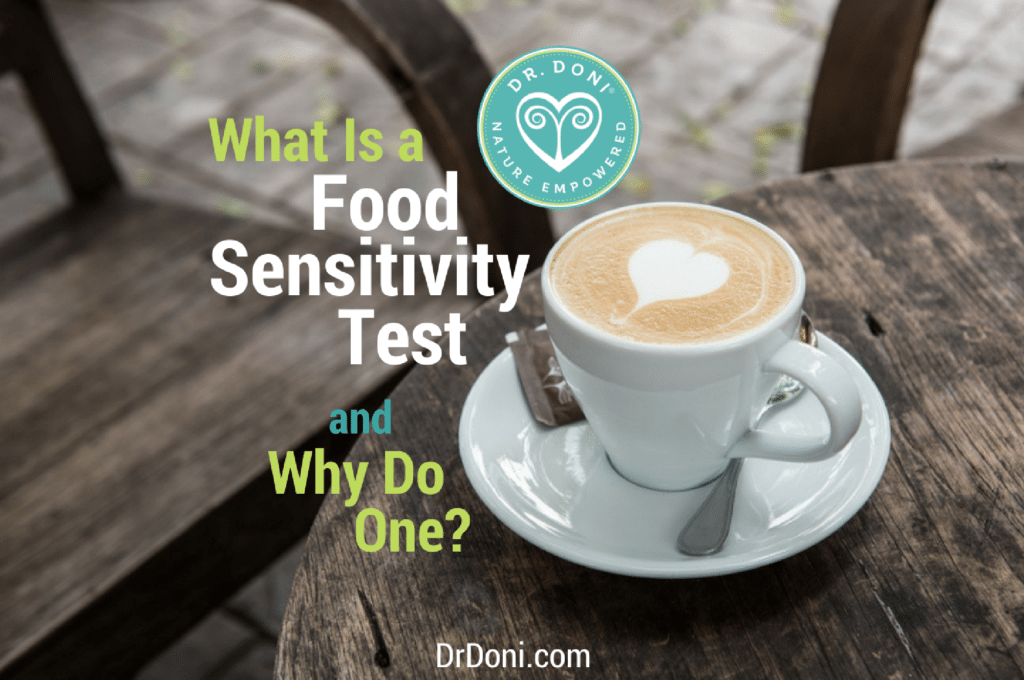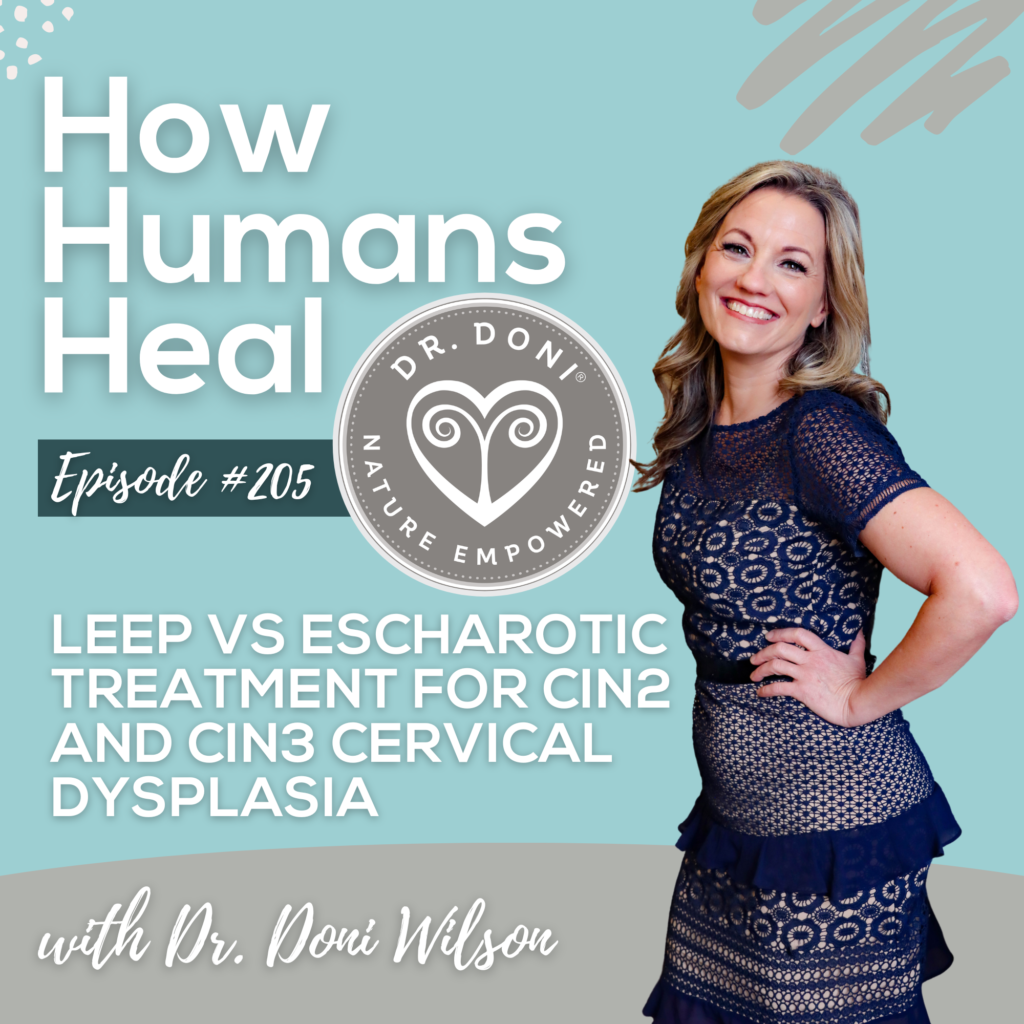
What Is a Food Sensitivity Test – and Why Do One?
- Home
- Leaky Gut & Food Sensitivity
- What Is a Food Sensitivity Test – and Why Do One?

Dr. Doni explains the importance of food sensitivity testing in healing leaky gut and any number of other inflammatory-related conditions.
 People often say to me, “I don’t have any food allergies. I would know if I was reacting to a food. I tried avoiding foods for a while and didn’t feel any better. Why bother with a food sensitivity test?”
People often say to me, “I don’t have any food allergies. I would know if I was reacting to a food. I tried avoiding foods for a while and didn’t feel any better. Why bother with a food sensitivity test?”
I felt that same way years back – well, it was actually decades back.
I have a LONG history of allergies and reactivity to foods. I didn’t think of it much and had no idea that it was at the root of some major symptoms I was experiencing. For example, from a rather young age, I figured out that non-organic strawberries caused me to get canker sores, and raw apples made my mouth feel itchy and swollen. So I just avoided those fruits, but I still had other health issues such as acne, hayfever, and IBS.
Then, when I was a naturopathic medical student, I learned about food sensitivity testing (different than food allergy testing) from a couple of my mentors. I saw that we could identify which foods a patient was reacting to, not immediately after they ate the food, but days or even weeks later. When we guided that patient to avoid those foods, she started to feel better. Skin rashes went away, and so did headaches, joint pains, extra weight, anxiety, and autoimmunity.
My Findings About Food Sensitivity Tests
So I started researching and trying out food sensitivity testing for myself. I tried every different type of test: Blood tests, skin prick tests, elimination diets, and kinesiology tests (you name it, and I tried it!) and I found some varying results. Some tests indicated, for example, that I reacted to some of my favorite foods, like salmon and chocolate. Others showed I reacted to foods that I had a feeling I might react to, like gluten and dairy. So I started to avoid the foods that showed and learned a whole lot.
I learned that not all tests are created equal. Some are more sensitive and specific than others. Some showed every possible food that I react to, even just a little bit while others honed in on the most significant reactions. That’s the test I want to do – the one that gives the most specific answers and leads to the most health improvement. More about the test I recommend below.
Why Favorite Foods Show Up on Food Sensitivity Test?
I also found that food sensitivity tests help me to identify the cause of the food sensitivities: leaky gut. And addressing leaky gut is essential to helping health issues resolve.
You see, when the body reacts to foods, it is due to a condition called leaky gut, which is caused by a number of things, including gluten, stress, pesticides, and prescription medications. The leakiness of the gut lining allows particles of food to leak through the gut wall (between the cells) and to trigger the immune system which is why food reactions exist in the first place.
It also explains why I reacted to some of my favorite foods. Because I was eating my favorite foods most often, my immune system “saw” them more consistently and therefore developed an antibody response to “protect” me against them. This response then leads to more damage to the intestinal lining and more severe leaky gut.
In other words, something you may be eating everyday could be making you feel awful!
So it became obvious to me:
The best way to resolve health issues is to heal leaky gut.
And the best way to heal leaky gut is to avoid foods that cause it.
To do that, we need to start by doing a food sensitivity panel, so we can determine where we are starting and which foods to avoid.
Why Do Food Sensitivities Lead to Inflammation?
When I started digging into the research, I was both elated and freaked out to find that inflammation and leaky gut are tied to all sorts of conditions, from autoimmunity – like Hashimoto’s, lupus, rheumatoid arthritis, Behcets, and psoriasis – to depression, anxiety, migraines, fibromyalgia, fatigue, PMS, PCOS, infertility, and even cervical dysplasia, a condition I help women treat all the time.
Could that be why I find that patients who come to see me with such a wide range of health issues so often have at least a few food sensitivities and some degree of leaky gut?
Yes! Because leaky gut is an underlying, root cause of inflammation. And that inflammation spreads out through the body stirring up trouble wherever it lands in your body.
After countless hours of seeing patients I could see that the foods involved in food sensitivities (particularly gluten) create a vicious cycle of worsening leaky gut and a growing number of health issues. When foods leak through the intestinal lining and trigger an antibody immune response, a whole cascade of inflammatory signals travel from the digestive tract to anywhere and everywhere in the body. Even to the brain, the thyroid, joints, uterus, and more. So, to reduce food sensitivities is also to decrease inflammation … big time.
It makes viruses more likely to cause more inflammation too. Epstein Barr virus (EBV), HPV, HSV, CMV (and others) are all known to become active when either you or your body is stressed (and inflamed). And leaky gut is not only caused by stress, but it qualifies as a huge stress in itself.
So how do we get out of this vicious cycle of stress on top of more stress?
By avoiding the foods that are causing the problems – and the only way to do that is to take a food sensitivity test so you know which foods to avoid.
Which Food Sensitivity Test is Best and What Does it Show?
Following all my research, I now recommend a food sensitivity test for IgA and IgG antibodies. You see, the body makes lots of different types of antibodies, and they are named with letters. IgE is the antibody associated with classic food allergies, like a peanut allergy (allergists specialize in testing for IgE food allergies). IgA and IgG are delayed response antibodies. IgA antibodies can last up to a week in your body after you eat a food, and IgG can last three weeks.
That means that you’re likely not to FEEL the reaction to the food when you eat it. It is more likely to cause low-grade inflammation and symptoms over time. And if you eat that food every day, the inflammation adds up. So to me, it’s most important to test for IgA and IgG antibodies; this will tell us the most significant responses to foods. This is important because, if you are going to be avoiding foods in your diet, you want to be sure you avoid the most important foods.
Have you been wondering if you have gluten sensitivity and need to avoid gluten?
With the information we get from an IgA and IgG food sensitivity test we can tell several things:
- Which foods to avoid
- Which foods are causing or perpetuating leaky gut
- The severity of the leaky gut
That is priceless information to have when your goal is to heal your body, but it’s important to know that not many practitioners offer testing for IgA and IgG food reactions so this is not a test you’ll be able to have done at the allergist’s office or even at a standard lab. However, you can do food sensitivity testing at home – it is available as a blood test by finger poke – find the food sensitivity panel I recommend here in my online store.
What I consistently find is that once patients have the results in front of them that finally say exactly what they should and shouldn’t be eating, they feel extremely motivated to make changes to their diet. It’s hard to change your diet without knowing for sure which foods are negatively affecting your health – having results cuts through that confusion.
With this information, we can make a strategy for your health, including diet changes,  that will decrease inflammation and help your body heal, plus we can choose products and/or supplements* to address leaky gut depending on the severity.
that will decrease inflammation and help your body heal, plus we can choose products and/or supplements* to address leaky gut depending on the severity.
After Your Food Sensitivity Test – What Comes Next?
I recommend having a practitioner (preferably a naturopathic doctor) who is trained in this approach help you design a plan for healing leaky gut, especially if your case is more complex.
You see, there is a paradox to addressing leaky gut: The more severe it is, the more simplistic the approach needs to be. In addition to looking at your symptoms, I look for patterns in the number and types of foods that show a reaction to determine the severity of your leaky gut and the appropriate strategy for healing.
If you’d like to get started with addressing leaky gut, I recommend these three products, which I’ve included in my 21-day Stress Remedy Program:
- Enzyme Support. Plant-based enzymes to help digest all types of food and help digest gluten and casein (two of the most common food sensitivities) in case you are exposed.
- Leaky Gut Support. A powder containing glutamine, an essential nutrient for the cells of the small intestine, DGL (licorice), aloe and arabinogalactan, all of which have been shown to assist with decreasing inflammation and establishing a healthy gut lining.
- Probiotic Support. This highest quality probiotic contains Lactobacillus and Bifidobacteria, two gut bacteria that are decreased by stress, gluten and antibiotics (amongst other things). Probiotic Support is a practitioner grade product that is refrigerated to preserve the quality and effectiveness.
Why Do I Recommend Doing a Food Sensitivity Test?
It is by following these recommendations that I was able to get rid of the acne, hayfever, and IBS I mentioned at the start of this article. I also stopped getting sinus infections, menstrual cramps, and started feeling a lot better in general. I have also avoided developing an autoimmune condition, to which I am genetically predisposed (both my mother and grandmother have/had autoimmunity).
There you have it! That’s why I recommend doing a food sensitivity panel – because we can find out which foods are finding their way through a leaky gut lining, triggering your immune system, and causing lots of inflammation in your body.
Once we know which foods they are, then it is simply a matter of eliminating them from your diet,  while of course making sure you have enough foods to choose from, and implementing my 5-Step Program for Healing Leaky Gut so that in the near future, you’ll be able to return to eating some or most of those foods again.
while of course making sure you have enough foods to choose from, and implementing my 5-Step Program for Healing Leaky Gut so that in the near future, you’ll be able to return to eating some or most of those foods again.
 If you would like my support to heal leaky gut, you might want to try my special Leaky Gut Solutions Program which includes food sensitivity testing and 5 consultations with me where I will help you design and maintain a plan to heal your leaky gut. You can find more information here.
If you would like my support to heal leaky gut, you might want to try my special Leaky Gut Solutions Program which includes food sensitivity testing and 5 consultations with me where I will help you design and maintain a plan to heal your leaky gut. You can find more information here.
My hope is that this article will help you to feel empowered to do something to help yourself feel better. Information about leaky gut and food sensitivities is available, but not often from standard medical sources. To prevent health issues, you need to be an advocate for your health and take steps to learn what your body needs, then apply that information and see how you feel from there.
Join me for future articles by signing up for my newsletter here and, if you would like to read testimonials about how this approach has helped others, you’ll find them here.
–Dr Doni
24th January 2017
*Please keep in mind that any and all supplements—nutrients, herbs, enzymes, or other—should be used with caution. My recommendation is that you seek the care of a naturopathic doctor (with a doctorate degree from a federally-accredited program) and that you have a primary care physician or practitioner whom you can contact to help you with individual dosing and protocols. If you ever experience negative symptoms after taking a product, stop taking it immediately and contact your doctor right away.
Share this Post:
Dr. Doni Wilson's Team
14 Day Detox Program
Take the Stress Type Quiz
Dr. Doni Social Media
Popular Posts


The 5 Burnout Types

Healing HPV Holistically: Dr. Doni on the Inspire Health by Jen Podcast

Recent Podcasts
Signup to receive our weekly newsletter with all the latest news, podcasts and special offers
New Book - Order Today!

SIMPLE PRACTICES for SHIFTING FROM YOUR STATE of STRESS to YOUR FLOW and FREEDOM
MASTER YOUR STRESS
RESET YOUR HEALTH
Order Now! Related Posts

What is making you susceptible to HPV?
I have been working with women who had abnormal cells on their cervix and/or vaginally, caused by HPV for over 20 years now. And while

The 5 Burnout Types
Did you know there are 5 burnout types? They are based on your Stress Type®, which is how your adrenal function has been affected by

Healing HPV Holistically: Dr. Doni on the Inspire Health by Jen Podcast
Dr. Doni was interviewed by Jen Ciszewski on the Inspire Health by Jen Podcast, talking about how to heal away HPV from your body for good.

Stress and Trauma: The Science Behind It, How It Shows Up and How to Heal: Dr. Doni on The Burn Fat and FEAST Podcast
Dr. Doni was interviewed by Sarah B. Thomas on the Burn Fat and FEAST Podcast, talking about the impact of stress and trauma on our health and what to do to recover from them.














